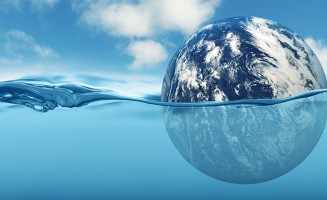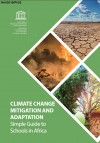Addressing Climate Change
UNESCO’s Strategy for Action on Climate Change (2018-2021), federates UNESCO’s work and joins it with that of other UN bodies and aims to help Member States to mitigate and adapt to climate change, to educate for sustainable development in the context of climate change, to assess the risks of natural disasters due to climate change, and to monitor the effects of climate change on UNESCO designated sites (e.g. World Heritage sites, biosphere reserves and UNESCO Global Geoparks). These sites promote low carbon economies, for instance through the sustainable use of renewable energy sources.
The complexities involved require enhanced progress in providing education, public awareness and training for societies around the world to better understand, mitigate and adapt to climate change. Such progress will create an informed citizen, a knowledgeable workforce and enlightened government officials.
Climate change is increasingly recognized as the driver of biodiversity change with the most rapid increase in impacts and related cascading effects on human livelihoods. Loss and degradation of biodiversity, such as forests, is also an important driver of climate change. Through the ecosystem services it supports, biodiversity makes an important contribution to both climate change mitigation and adaptation, providing the basis for efforts to reduce the negative effects of climate change.
The importance of the ocean to global climate change cannot be underestimated. The ocean regulates our climate and captures almost a third of our carbon emissions. Whether caused by increasing greenhouse gases, coastal pollution, overfishing, coastal development or increasing population pressure, the world’s ocean, coasts and marine ecosystems are undergoing great changes.
UNESCO Strategy for Action on Climate Change
In 2017, the UNESCO General Conference adopted a new Strategy for Action on Climate Change (SACC) which outlined UNESCO’s four-point strategy to support Member States adapt to climate change and mitigate its effects on their citizens and territories over the period 2018-2021. This is done in line with Member States’ Nationally Determined Contributions (NDC) to the 2015 Paris Agreement, and geared towards realizing the 2030 Agenda for Sustainable Development, notably Sustainable Development Goal (SDG) 13.
Evaluation of UNESCO’s Strategy for Action on Climate Change (2018-2021)
In summer 2021, UNESCO’s Internal Oversight Service (IOS) completed an Evaluation of UNESCO’s Strategy for Action on Climate Change (2018-2021). The evaluation assesses the relevance, coherence and effectiveness of the Strategy in allowing UNESCO to support Member States in tackling climate change, including through a deeper analysis of concrete activities undertaken in the field through the Harare, Jakarta and Kingston Offices. This short video highlights some of the key findings and recommendations.
- Full report (pdf)
- Summary (pdf)
- Short video









